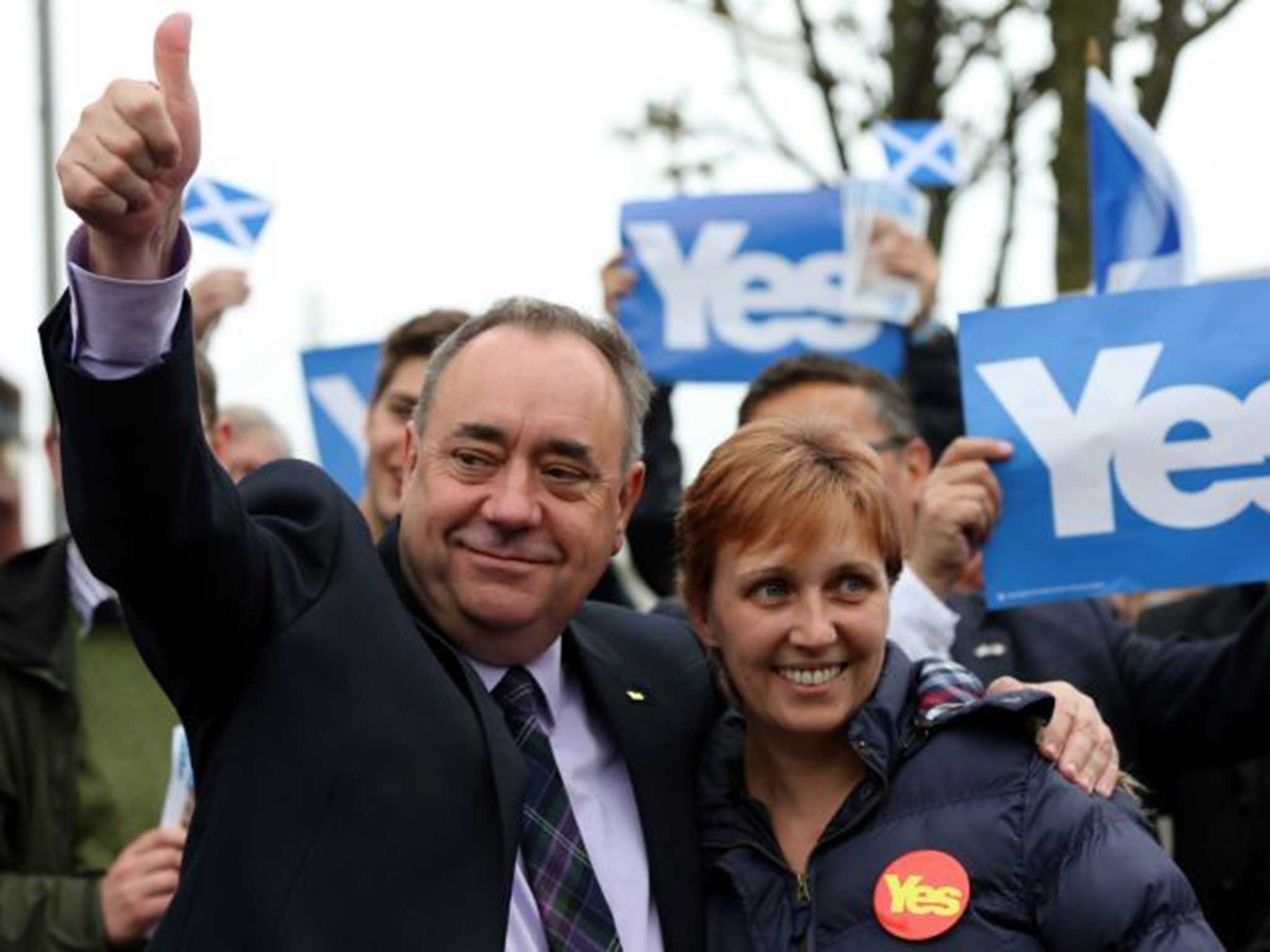Scottish independence: Nationalism is a dangerous political philosophy. I am Scottish and I am British.
This is how war starts: a charismatic leader convinces a group of people that their economic hardship is caused by another group

Your support helps us to tell the story
From reproductive rights to climate change to Big Tech, The Independent is on the ground when the story is developing. Whether it's investigating the financials of Elon Musk's pro-Trump PAC or producing our latest documentary, 'The A Word', which shines a light on the American women fighting for reproductive rights, we know how important it is to parse out the facts from the messaging.
At such a critical moment in US history, we need reporters on the ground. Your donation allows us to keep sending journalists to speak to both sides of the story.
The Independent is trusted by Americans across the entire political spectrum. And unlike many other quality news outlets, we choose not to lock Americans out of our reporting and analysis with paywalls. We believe quality journalism should be available to everyone, paid for by those who can afford it.
Your support makes all the difference.When divisions are so hardened that proponents do not listen to one another, facts and analysis don’t matter. All that will be heard is that which cannot be refuted: people’s experiences, feelings, and beliefs. As a Scot who has spent years working in international development, please allow me to share mine with you.
I believe that independence is an illusion. We are interdependent. Our fortunes are tied to the fortunes of England, America, India, Indonesia, Colombia, and Mali. We can escape into utopian visions of independence, or we can accept that we live in an interdependent - and imperfect - world. We all suffer from the impact of the financial crisis, subjugation of women, and the challenge of providing free services with limited resources.
I believe that nationalism is a dangerous political philosophy. I’ve spent the last seven years working in war-torn countries in Africa, the Middle East, and Asia. In every case, this is how war starts: a charismatic leader convinces a group of people that their economic hardship is caused by another group which dominates state institutions. The answer is to bring down those institutions and drive the ‘other’ group out. Neighbours are pit against one another. Conflict erupts into violence. The economy collapses, and in come people like me.
I believe that being British is a tremendous advantage. Growing up in a Union essentially ‘trains’ you for the new world which is coming into existence. It is a world where national boundaries matter less and less. They matter less to us personally: we can live, work, and connect across boundaries. They also matter less politically: what matters now is the power we wield in international and regional organisations.
It’s because I’m British that I’ve been able to live and work on four continents. And it’s because I’m British that I’ve wanted to. My mother is Welsh, my father is Scottish, and I grew up hearing three languages: Gaelic, English and Welsh. I am Scottish. I am Welsh. I am British. Growing up in Britain taught me to help people who suffer, wherever they are in the world.
Britain was the major force behind almost every step towards making our world a more peaceful and just: the human rights movement, the women’s rights movement, the end of fascism. Today, Britain is a major supporter of international humanitarian and development efforts, investing more than £11 billion a year to help the poorest people in the world.
That investment matters tremendously, but it’s not just about the money and political capital Britain invests. We model unity and tolerance and justice to countries which are struggling with these things. We show them how to establish inclusive state institutions, and give them hope that different people can live along side one another.
That is why the UK has such great power within international and regional organisations. If we break this union, we will lose that.
I don’t want to live in a country that isn’t able to effectively influence international law and policy. Most of all, I don’t want the world to lose a powerful voice for unity and the rule of law.
The material that has poured through our letterboxes implies that ‘Westminster’ is the source of all our problems. Because I’ve seen how Britain works around the world to help end poverty and oppression, I don’t believe this.
I believe the reason for this referendum is that we Scots have an enemy image of England. I’ve heard ‘Flower of Scotland’ more in the last two weeks than in my whole life to date. I understand it. I’m a MacDonald from the Isle of Islay. My ancestors were allies of Robert Bruce and fought at Bannockburn. They also suffered the Highland Clearances. And when I moved to England aged seven, I was bullied for my Scottish accent. But I had to get over it. We can’t move into a peaceful and just future while we carry these resentments.
Because it doesn’t matter how you talk. What matters is what you have to say, what you stand for, and who you stand with. I stand with anyone who believes in unity, peace, and justice among the peoples of this earth.